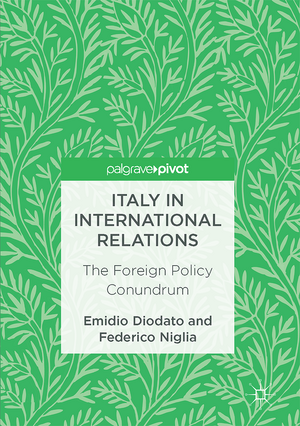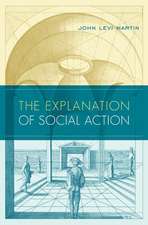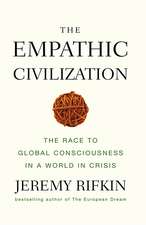Italy in International Relations: The Foreign Policy Conundrum
Autor Emidio Diodato, Federico Nigliaen Limba Engleză Hardback – 14 iun 2017
| Toate formatele și edițiile | Preț | Express |
|---|---|---|
| Paperback (1) | 410.94 lei 6-8 săpt. | |
| Springer International Publishing – 13 mai 2018 | 410.94 lei 6-8 săpt. | |
| Hardback (1) | 416.92 lei 6-8 săpt. | |
| Springer International Publishing – 14 iun 2017 | 416.92 lei 6-8 săpt. |
Preț: 416.92 lei
Nou
Puncte Express: 625
Preț estimativ în valută:
79.79€ • 86.64$ • 67.02£
79.79€ • 86.64$ • 67.02£
Carte tipărită la comandă
Livrare economică 23 aprilie-07 mai
Preluare comenzi: 021 569.72.76
Specificații
ISBN-13: 9783319550619
ISBN-10: 3319550616
Pagini: 123
Ilustrații: IX, 123 p.
Dimensiuni: 148 x 210 x 15 mm
Greutate: 0.31 kg
Ediția:1st ed. 2017
Editura: Springer International Publishing
Colecția Palgrave Macmillan
Locul publicării:Cham, Switzerland
ISBN-10: 3319550616
Pagini: 123
Ilustrații: IX, 123 p.
Dimensiuni: 148 x 210 x 15 mm
Greutate: 0.31 kg
Ediția:1st ed. 2017
Editura: Springer International Publishing
Colecția Palgrave Macmillan
Locul publicării:Cham, Switzerland
Cuprins
Chapter 1: Italy in international relations: European benchmarks dates and national critical junctures.- Chapter 2: March 1861 The challenging myth of the post-imperial legacy.- Chapter 3: September 1943 Democratic transition and international adjustment.- Chapter 4: February 1992 Italy in a post-bipolar world.
Notă biografică
Emidio Diodato is Associate Professor at Università per Stranieri di Perugia, Italy.
Federico Niglia is Adjunt Professor at Libera Università Internazionale degli Studi Sociali, Italy.
Textul de pe ultima copertă
This book will become a compulsory reading for all those scholars and students that are open to reconsider the Italian foreign policy in a new, original and interdisciplinary way to better understand the great relevance of it from both an Italian perspective and a European one.
Leonardo Morlino, Professor of Political Science, LUISS University, Italy
Italy's role in the world has often perplexed external onlookers. Whilst being a deeply European, indeed federalist, country, firmly wedded to the "West", Italy has at times adopted positions and policies that apparently diverged from mainstream European and Western approaches. Combining depth with breadth, Diodato and Niglia masterfully unpack this conundrum, explaining the peculiarities of Italian foreign policy by dissecting three defining moments in the country's historical trajectory.
Nathalie Tocci, Deputy Director, Istituto Affari Internazionali, Iatly
Italy is often portrayed asa contradictory country. This book aims to provide an overview of Italian foreign policy from the moment of unification to the establishment of the European Union. Three turning points are crucial in order to clarify Italy’s foreign policy: 1861, the proclamation of the Italian Kingdom; 1943, when Italy surrendered in World War II; 1992, the signing of the Maastricht Treaty. The international position of Italy continues to be an enigma for many observers and this fuels misinterpretations and prejudices. This book argues that Italy is different but not divergent from other European countries. Italian elites have traditionally seen foreign policy as an instrument to secure the state and import models for development. Italy can still contribute to international security and the strengthening of the EU. At the same time, Italy is not a pure adaptive country and has always maintained a critical attitude towards the international system in which it is incorporated.
Leonardo Morlino, Professor of Political Science, LUISS University, Italy
Italy's role in the world has often perplexed external onlookers. Whilst being a deeply European, indeed federalist, country, firmly wedded to the "West", Italy has at times adopted positions and policies that apparently diverged from mainstream European and Western approaches. Combining depth with breadth, Diodato and Niglia masterfully unpack this conundrum, explaining the peculiarities of Italian foreign policy by dissecting three defining moments in the country's historical trajectory.
Nathalie Tocci, Deputy Director, Istituto Affari Internazionali, Iatly
Italy is often portrayed asa contradictory country. This book aims to provide an overview of Italian foreign policy from the moment of unification to the establishment of the European Union. Three turning points are crucial in order to clarify Italy’s foreign policy: 1861, the proclamation of the Italian Kingdom; 1943, when Italy surrendered in World War II; 1992, the signing of the Maastricht Treaty. The international position of Italy continues to be an enigma for many observers and this fuels misinterpretations and prejudices. This book argues that Italy is different but not divergent from other European countries. Italian elites have traditionally seen foreign policy as an instrument to secure the state and import models for development. Italy can still contribute to international security and the strengthening of the EU. At the same time, Italy is not a pure adaptive country and has always maintained a critical attitude towards the international system in which it is incorporated.
Caracteristici
Offers a bold and interesting approach to Italy’s post-Risorgimento history Combines international history with Foreign Policy Analysis (FPA) Explains how Italy has failed to be taken as seriously as the other three big European states and the critical interplay between internal and external factors











